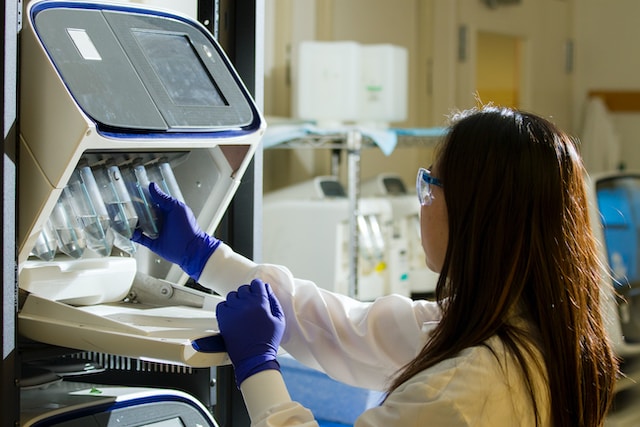Biotechnology, a dynamic field at the intersection of biology and technology, has revolutionized countless industries, from healthcare to agriculture. In the present era, biotechnology is unlocking new possibilities that were once unimaginable. This article explores the remarkable advancements in biotechnology and their far-reaching impacts on society.
Biotechnology in Healthcare
Biotechnology has ushered in a new era of personalized medicine. Thanks to genetic engineering and biopharmaceuticals, treatments are tailored to individual patients, improving their effectiveness and reducing side effects. For instance, monoclonal antibodies, produced through biotechnology, have transformed cancer therapy and autoimmune disease management.
Furthermore, CRISPR-Cas9, a revolutionary gene-editing tool, enables precise modification of genes. This breakthrough technology holds immense potential in treating genetic disorders, such as sickle cell anemia and muscular dystrophy. It’s a game-changer in the medical field, offering hope for patients who once had limited treatment options.
Agricultural Biotechnology
In agriculture, biotechnology has significantly increased crop yields while reducing the need for harmful pesticides. Genetically modified (GM) crops, such as Bt cotton and pest-resistant corn, have revolutionized farming practices. These crops are more resilient and can thrive in adverse conditions, helping to address global food security challenges.

Moreover, CRISPR-Cas9 is making waves in agriculture as well. Scientists can precisely edit plant genomes to enhance traits like drought resistance and nutritional content, offering solutions to address changing climate conditions and malnutrition.
Environmental Applications
Biotechnology plays a pivotal role in environmental conservation. Microbial bioremediation is an innovative approach to clean up contaminated soil and water. Microbes are engineered to break down pollutants, such as oil spills and industrial waste, into harmless byproducts, mitigating environmental damage.
Biotechnology also contributes to sustainable energy production. Biofuels derived from algae and microorganisms are environmentally friendly alternatives to fossil fuels. They offer the promise of reducing greenhouse gas emissions and combating climate change.
Industrial Biotechnology
The industrial sector benefits immensely from biotechnology, particularly in the production of bio-based materials. Bioplastics, made from renewable resources like corn and sugarcane, are biodegradable and reduce the environmental burden of traditional plastics.
Enzymes produced through biotechnology have revolutionized various manufacturing processes. They are used in detergents, food processing, and textile industries, among others, improving efficiency and reducing waste.
Challenges and Ethical Considerations
Despite its tremendous potential, biotechnology also presents ethical dilemmas. Genetic engineering, in particular, raises concerns about unintended consequences and the potential for misuse. Ethical debates surrounding designer babies, gene doping in sports, and bioterrorism underscore the need for responsible governance and ethical guidelines.
Conclusion
In the present world, biotechnology is driving innovations across diverse fields, from healthcare and agriculture to environmental conservation and industry. Its transformative power offers hope for addressing pressing global challenges, but also requires responsible and ethical stewardship. As biotechnology continues to evolve, it is essential to strike a balance between harnessing its potential for the greater good and safeguarding against potential risks. The future holds exciting possibilities as biotechnology continues to shape our world in ways we can only begin to imagine.

